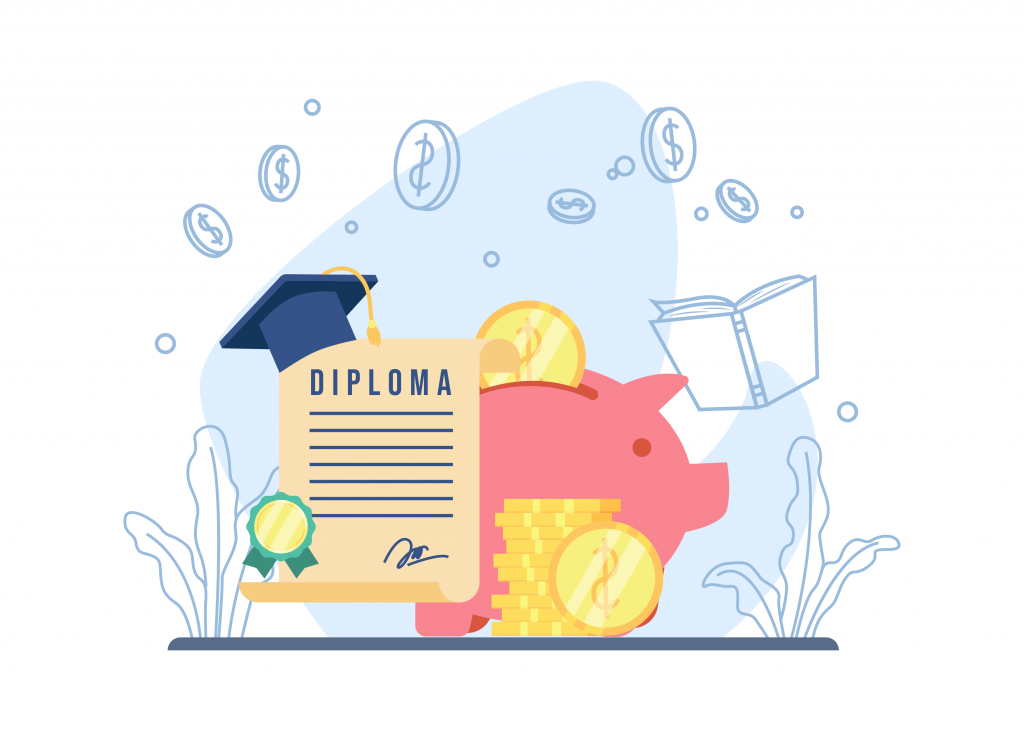Navigating the modern financial landscape successfully requires more than understanding addition and subtraction. As students and future professionals, it’s essential to recognize the significan of financial literacy and the role it plays in ensuring a secure and comfortable future. Acquiring financial literacy is essential for unlocking one’s full financial potential, which extends beyond student loan repayment. It’s not just about paying off student loans but also about understanding how to make your money work for you.
This article explores how financial literacy can prepare students for a brighter future.
Importance of Financial Literacy for Students
Financial literacy is a vital life skill that goes beyond balancing a checkbook. It is about effectively using various financial skills, including personal financial management, budgeting, and investing. This understanding is essential to prepare students for future work and personal responsibilities, setting them up for long-term success.
When students develop solid financial habits early on, they’re better equipped to navigate life’s financial challenges, from managing student loans to planning for retirement. Moreover, financial literacy can significantly contribute to reducing the stress and anxiety often associated with financial instability.
Financial literacy also improves students’ emotional intelligence. Handling finances requires discipline, patience, and the ability to delay gratification, which are all integral components of emotional intelligence. Being financially literate means making informed decisions rather than emotionally driven ones, which can lead to better overall life choices.
Empowering Students through Financial Literacy: Tips and Techniques
Formal Education and Online Learning
Formal education plays a significant role in fostering financial literacy. Students can incorporate financial education into their studies, and learn about concepts like interest rates, investments, taxes, and retirement planning.
Meanwhile, online education providers like iN Education, Inc. offer resources to supplement this formal education. Students can use these resources at their own pace, gaining in-depth understanding of financial concepts.
Practical Application
One of the most crucial financial lessons students can learn is the art of saving in college. With many students earning part-time incomes or receiving regular allowances, college presents the perfect opportunity to instill the habit of saving.
For instance, students can be encouraged to set saving goals for items or experiences they wish to have. They can then practice budgeting their income or allowance to meet these goals while balancing their necessary expenses.
This exercise can be a real eye-opener, highlighting the impact of seemingly minor daily expenses on their overall financial health. Furthermore, it helps students understand that small savings today can lead to significant financial benefits in the future.
Use Financial Literacy Apps
Technology has transformed the way we learn, and financial education is no exception. There are numerous financial literacy apps designed to make learning about money engaging and relatable. These apps often include interactive features, quizzes, and real-world simulations that can make financial education more exciting and accessible.
Attend Financial Workshops and Seminars
Universities and community centers often offer free or low-cost workshops and seminars on various financial topics. These sessions can provide valuable insights into practical aspects of finance like investment strategies, debt management, tax planning, and more. However, it’s important to approach similar events offered by banks and other financial institutions with a degree of caution.
These organizations may have a vested interest in upselling their products and services, their primary focus often being more on sales than on genuinely assisting customers. As a student, you should know how to distinguish useful and unbiased information from those that primarily serve the institution’s marketing objectives.

Read Financial Books and Blogs
There’s a wealth of knowledge available in books written by financial experts. Books can provide insights into money management and financial independence. Similarly, following financial blogs can keep students updated with the latest financial trends and advice.
Engage in Investment Simulations
Investment simulations, like stock market games, provide a risk-free environment for students to apply their financial knowledge. These simulations can give them firsthand experience of how markets work, the intricacies of trading, and the impact of economic events on investment performance.
Regardless, students should exercise caution regarding in-app purchases and membership fees that may be associated with these platforms. These costs can add up quickly and turn an educational tool into an unexpected expense. Always ensure that the value gained from the service aligns with the costs incurred.
Maintain a Financial Journal
Keeping a financial journal can be an effective way for students to track their income, expenses, and savings. It encourages self-reflection on spending habits, helps identify areas for improvement, and keeps the focus on financial goals.
Final Thoughts
There’s a lot to learn about finances, and the process can seem daunting. However, armed with financial education, students are more prepared to face the financial challenges that await them in their future careers. They become able to make prudent financial decisions, manage their debts wisely, and even plan for a secure retirement.
Financial literacy is a lifelong journey, not a destination. And like all worthwhile pursuits, it requires dedication, patience, and a willingness to continually learn and grow.
iN Education and Your Future
Are you ready to equip yourself or your child with financial knowledge that can empower a lifetime? Check out the life coaching and situational awareness resources at iN Education, Inc.
Learn at your own pace, enrich your understanding, and embark on a journey toward financial wisdom and independence. Because it’s not just about making money—it’s about making informed decisions that will shape your future. Remember, the best investment you can make is in yourself!























